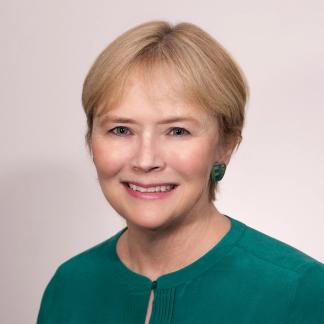Barbara Mellers
I. George Heyman University Professor
Solomon Labs
3720 Walnut St, Room C1

Research Interests
Judgment and decision Processes
Specific Research Areas
Behavioral Decision Theory, Behavioral Economics, Human Prediction and Forecasting, Effects of Emotions on Choice; Micro and Macro Fairness Concerns; Preference Measurements; Improving Judgment and Choice and Policy Implications
I am the George I. Heyman University Professor at the University of Pennsylvania, with cross-appointments in School of Arts and Sciences and the Wharton School (since 2011). Prior to that, I was a professor at the University of California Berkeley.
My training is in cognitive psychology. I study how and why people form beliefs, judgments and preferences. I take an experimental approach in which I manipulate and control variables, then build mathematical models to describe the underlying processes. For years, I have worked with students and colleagues to explore what some view as “nuisance” variables, or variables that influence behavior but are absent from theories of rational decision making. Such variables include context effects (e.g., how do background stimuli shape judgments?; why does a basketball player look short on the court but tall at the cocktail party?) and response mode effects (e.g., when can we reverse responses by asking the theoretically similar questions?; when is A preferred to B, but B is seen as having greater value than A?). I have also studied the effects of social and emotional variables on judgments and decisions, such as how anticipated and actual emotions influence choice, why some allocations of scarce resources are perceived as fair while others are not, and how our moods systematically change cooperative behavior in economic games. My aim is to understand how, when, and why people deviate from seemingly rational behavior.
Understanding judgments and decisions is key to improving them. I now focus on the implications of decision errors. For example, I have shown that juries make more decision errors than most people find acceptable. If so, irreversible sentences (such as the death penalty) should be reconsidered. I have also worked with colleagues and students to improve the accuracy of human predictions of geopolitical and economic events. As Co-PI of the Good Judgment Project, I conducted large-scale field experiments to boost the accuracy of human forecasts. Using randomized control trials, we discovered that predictions are significantly more accurate with certain elicitation methods, with training of basic skills, with the selection of personnel who have certain cognitive styles and abilities, and with environments that are rich in information and social interaction. Forecasting is a skill that can be cultivated and is worth cultivating – and we now know the profiles of those who are regularly and systematically more accurate across a wide range of events.
Courses Taught
PSYC 3730: Seminar in Judgments and Decisions Making
PSYC 6000: Proseminar in Judgments and Decisions
Education
BA, Psychology, University of California, Berkeley;
PhD, Psychology, University of Illinois
Selected Publications
Mellers, B. A., Ungar, L., Baron, J., Ramos, J., Gurcay, B., Fincher, K., Scott, S., Moore, D., Atanasov, P., Swift, S., Murray, T., & Tetlock, P. (2014). Psychological strategies for winning a geopolitical forecasting tournament. Psychological Science, 25, 1106-1115.
Mellers, B., Stone, E., Murray, T., Minster, A., Rohrbaugh, N., Bishop, M., Chen, E., Baker, J., Hou, Y., Horowitz, M., Ungar, L., & Tetlock, P.(2015). Identifying and cultivating superforecasters as a method of improving probabilistic predictions. Perspectives on Psychological Science, 10, 267-281.
Mellers, B., Stone, E., Atanasov, P., Rohrbaugh, N., Metz, S.E., Ungar, L., Bishop, M., Horowitz, M., Merkle, E. & Tetlock, P. (2015).The psychology of intelligence analysis: Drivers of prediction accuracy in world politics, Journal of Experimental Psychology: Applied, 21, 1-14.
Mellers, B. & Tetlock, P. (2019). From discipline-centered rivalries to solution-centered science: Producing better probability estimates for policy-makers. American Psychologist, 74, 290-300.
Mellers, B., Tetlock, P. & Arkes, H. (2019). Forecasting tournaments, epistemic humility and attitude depolarization, Cognition, 188, 19-26.